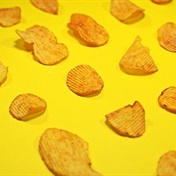We're into the 9th month of the Islamic (lunar) calendar, which means that right now, Muslims all over the world are fasting from predawn till sunset.
Fasting is one of the five pillars of the Islamic faith, which means it's mandatory for every capable male and female of age to fast. Ramadaan is not only about refraining from eating and drinking during daylight hours, but also about focusing your thoughts on what is good, which means it obligates you to avoid undesirable behaviours.
During this month, eating practices generally become radically altered, with increased consumption of fat (saturated and trans fats) and sugar, and reduced intakes of unrefined carbohydrates, fibre and fluids. That's a mistake: the principles of moderation and balance still apply, so healthy eating should remain a conscious choice.
Here are a few tips to ensure good heart health during this time:
Include all the food groups daily
A healthy, balanced diet usually includes foods from the different food groups in the correct amounts daily: at least six servings of unrefined starches, four servings of lean proteins, five servings of vegetables and fruits, two servings of low-fat dairy and three servings of healthy fats. This will ensure an adequate intake of macronutrients (energy, carbohydrates, protein and fat), micronutrients (vitamins and minerals) and fibre.
Bear in mind that these are general guidelines and that individual requirements will vary. For example, a very active person will require more servings of starch and protein.
Eat plenty of fibre-rich foods
Fibre is essential to prevent constipation, control blood-sugar levels, reduce high cholesterol levels and increase satiety levels. If you haven't been eating a fibre-rich diet, it's not a good idea to go big on it when you've already started fasting - it could result in bloating or (ironically) constipation.
It's easy to meet your fibre requirement during this month: at the early-morning meal (sehri), include a fibre-rich option like whole-wheat toast with tea or coffee and cereal with some fruit. For the evening meal (iftaar), include pasta or brown rice with lentils and vegetables, or a curry with whole-wheat roti.
Haleem, a common lentil-based soup eaten during this month, is a great source of fibre and other nutrients, therefore filling up on this dish will provide you with plenty of nourishment.
Include some healthy fats
Fats not only increase the palatability of a dish, but are essential to help absorb fat-soluble vitamins.
Consumption of unhealthy saturated fats (full-cream dairy, chicken skin, visible fats on meat, Brazil nuts, coconut, coconut milk, hard brick margarines, butter, ghee, coffee creamers, tea whiteners and palm kernel oil) and trans fats (commercially fried foods, biscuits, cakes, crackers and packet chips) raises the risk for cardiovascular disease by increasing bad cholesterol levels and lowering good cholesterol levels. Cut back on fat-laden options like deep-fried foods, biscuits, cakes, vetkoek, fried chilli bites, rich and creamy desserts and drinks - they provide little nutritional value and contain excessive amounts of kilojoules, causing weight gain, nausea and discomfort after eating.
Rather choose lower-fat or fat-free options to prepare various dishes, for example skim or low-fat milk for milkshakes, low-fat evaporated milk instead of cream, or low-fat cottage cheese instead of sour cream.
Good fats include monounsaturated (avocado, olives, olive oil, almonds, peanuts, pecan nuts, cashew nuts) and polyunsaturated fats (oily fish, seeds, soft tub margarine and vegetable oils). By adding a handful of nuts and seeds to your early morning or evening meal, you can be assured of some good, heart-healthy fats.
Drink plenty of fluids
Fluid intake is often neglected or forgotten during this busy month. It's essential to ensure adequate fluid intake. This van be achieved by having drinks at sehri, iftaar and during the course of the evening.
Low fluid levels can cause dehydration, headaches, low blood pressure or constipation. Aim to consume at least 6 – 8 glasses of water daily. Other drink options that can be included are tea, coffee, fruit juice or milkshake.
Use healthier cooking methods
Cooking methods obviously influence the tastiness of a dish. At the same time, it's not recommended that foods be cooked unhealthily by deep frying or using plenty of oil or ghee (clarified butter).
Fried savoury foods are commonly consumed during this month. Better options are to bake savouries and for other dishes to stir fry, dry fry, grill, sauté or braai. Curries should also be made using minimal amounts of vegetable oil.
Engage in light exercise
If you have been following a fairly active lifestyle, you shouldn't stop during this month, but perhaps just tone down. Engage in light exercises such as walking, cycling (a stationary bicycle is suitable if you have one), stretching and lifting light weights. This will enable you to feel less lethargic, more fit, alert and able to engage in the long evening prayer (taraweeh).
If you haven't been physically active in the past, try to include some of the above exercises. Just make sure you don’t overexert yourself.
(Ayesha Seedat, Registered Dietician, The Heart and Stroke Foundation South Africa, August 2009)
For more FREE heart-smart nutritional advice from a registered dietician, call the Heart Mark Diet Line during office hours on 0860 223 222 or email heart@heartfoundation.co.za.




 Publications
Publications
 Partners
Partners










